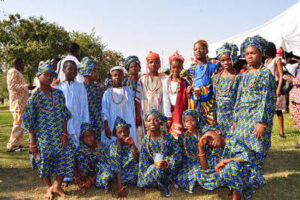Back to: Religious And National Values Primary 5
Welcome to today’s class!!
We are thrilled to have you in our class!!
In today’s Religious and National Values class, we will be focusing on Revision
Revision
As students, if there is a moment that you can look forward to to refresh your memory before writing your exams, is the Revision period. And because Revision is a very important step in fostering adequate preparations for examinations, it is important to enjoy it.
Let’s take a look at some of the topics we’ve covered so far.
Other People In The Family

A family is a group of two or more persons related by birth, marriage, or adoption who live together; all such related persons are considered as members of one family. For instance, if an older married couple, their daughter and her husband and two children, and the older couple’s nephew all lived in the same house or apartment; they would all be considered members of a single family.
However, apart from a mother, father, and children, we still have other people who are considered members of a family.
As such, other members of a family can include parents and their children, aunts, uncles, grandparents, cousins or other relatives, all living nearby or in the same household.
In some circumstances, the extended family comes to live either with or in place of a member of the immediate family. These families include, in one household or close proximity, relatives in addition to an immediate family. An example would be an elderly parent who moves in with his or her children due to old age.
In summary, just like a father, mother and children, other people in the family love and care for one another, show concern for one another. They Promote peace, equity and justice.
Readiness Test/Loyalty

A test designed to assess the developmental condition of an individual to determine whether or not, or to what extent, the individual could gain from some particular experience, is called a readiness test.
Readiness tests are commonly used in educational situations, and often include the measurement of how we reason, perceive, emotion, motivation, and other factors involved in the learning process, in an attempt to determine if a student is in a position to benefit from a particular course of instruction.
Loyalty, on the other hand, is the quality of being loyal. People demonstrate their loyalty to a sports team by cheering for it, win or lose.
People demonstrate their loyalty to a political party by voting only for the people of that party.
A person who feels loyalty to a nation, cause, or person feels a sense of allegiance, commitment, dedication toward them.
Irrespective of whether one is a born citizen, or whether citizenship is gained later in life – having loyalty to a country allows one to truly appreciate and love one’s homeland.
Loyalty is important for a variety of reasons. First and foremost, it promotes social unity and national unity. When people feel a sense of attachment and loyalty to their country, they are more likely to work together to solve problems and overcome challenges.
Additionally, loyalty can serve as a motivator for civic engagement and involvement in one’s community. When people are proud of their country, they are more likely to take an active role in shaping its future.
Unity in Cultural Diversity

Cultural diversity is about appreciating that society is made up of many different groups with different interests, skills, talents and. needs
The importance of cultural diversity can be interpreted on the basis of :
- Recognizing that there is a large amount of cultures that exist
- Respecting each other’s differences
- Acknowledging that all cultural expressions are valid
- Valuing what cultures have to bring to the table
- Empowering diverse groups to contribute
- Celebrating differences, not just tolerating them
Cultural diversity is important in every setting in life, but it can be even more beneficial when it happens within education. Students around the world have the right to equal access to quality education, and as such, there are many upsides that come along with it when schools believe in the power of diversity.
Communication and understanding of differences leads to increased compassion instead of judgment.
In summary, Interacting with people who have diverse practices, beliefs, life experiences, and culture promotes empathy. While you can never fully understand someone’s life without being them, you can learn, listen, and understand.
Evaluation
- What is a Family?
- Identify any three members of a family
Reading Assignment
- What is Loyalty?
- Mention two differences between Readiness Test and Loyalty.
Weekend Assignment
- What is Culture?
- Explain what you understand by Cultural Diversity
We hope you enjoyed today’s class. In our next class, we will be talking about Organization and Cooperation.
Let us know your thoughts and questions in the comment section, and we will attend to them as fast as we can.
